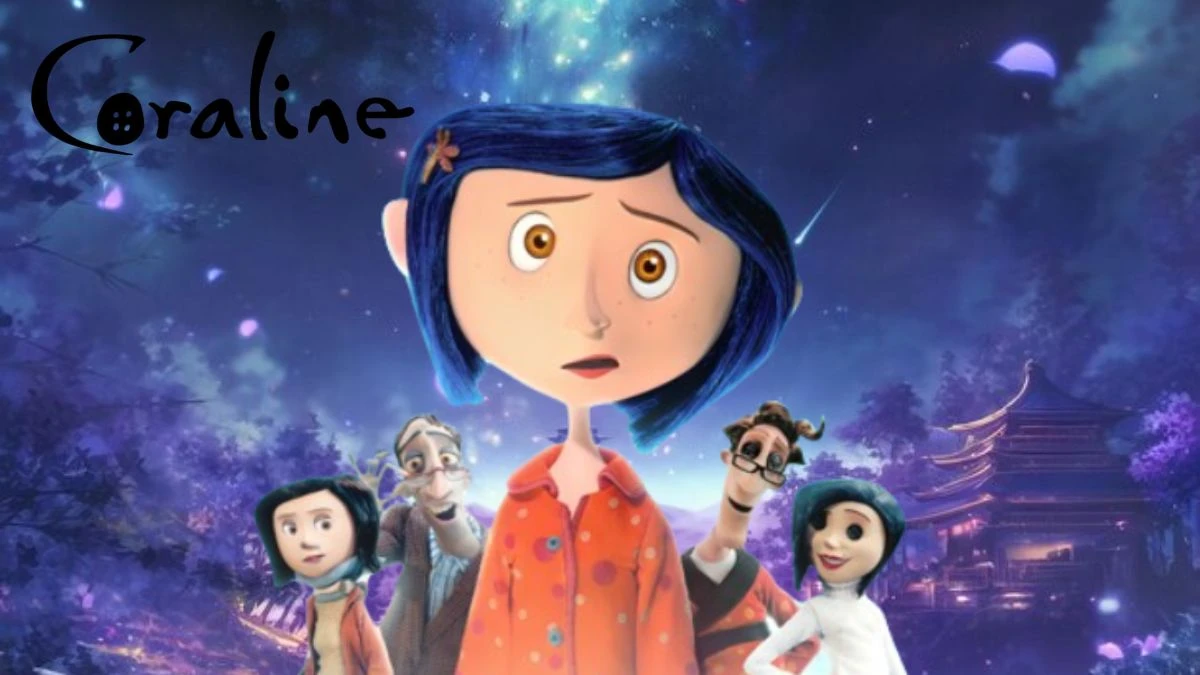Is Coraline Based On A True Story? Unveiling The Dark Inspiration
Is the world of "Coraline" a product of pure imagination, or does it whisper echoes of reality? The answer, while nuanced, leans towards the realm of fiction, yet the story's origins are far more intricate than a simple bedtime tale.
The tale of Coraline Jones, a young girl who stumbles upon a parallel world mirroring her own, albeit with unsettling differences, has captivated audiences for years. The 2009 animated film, directed by Henry Selick, is based on Neil Gaiman's 2002 novella of the same name. The story follows Coraline's journey through a secret passageway, where she encounters a world eerily similar to her own, but with a menacing "Other Mother" and a cast of characters with buttons for eyes. The film is a testament to the power of dark fantasy and horror, drawing viewers into a world that is both enchanting and deeply unsettling.
But, where did this captivating story originate? While "Coraline" isn't a retelling of true events, its roots delve into the rich tapestry of literary inspiration. Gaiman himself drew upon a constellation of influences, weaving together elements of Victorian folklore, personal experiences, and the evocative power of imagination.
| Category | Details |
|---|---|
| Title | Coraline |
| Type | Dark Fantasy Horror Children's Novella/Film |
| Author/Creator | Neil Gaiman (Author of Novella), Henry Selick (Director of Film) |
| Year of Publication/Release | 2002 (Novella), 2009 (Film) |
| Main Theme | Exploration of parallel worlds, the dangers of desire, and the importance of appreciating one's own life. |
| Major Awards (Novella) | Hugo Award for Best Novella (2003), Nebula Award for Best Novella (2003), Bram Stoker Award for Best Work for Young Readers (2002) |
| Influences | Victorian Folklore, the short story "The New Mother" by Lucy Clifford, Gaiman's own experiences and daughter's imagination. |
| Key Characters | Coraline Jones, The Other Mother/Beldam, The Cat, Coraline's Parents, The Other Father, The Other Neighbors |
| Notable Features (Film) | Stop-motion animation, unique visual style, dark and atmospheric tone. |
| Reference | Neil Gaiman's Official Website |
The origins of "Coraline" can be traced back to Victorian folklore, specifically a chilling tale titled "The New Mother." Penned by Victorian author Lucy Clifford, the story tells of two sisters who are abandoned by their mother and replaced by a sinister woman with glass eyes and a wooden tail. This eerie narrative served as a primary inspiration for Gaiman's own exploration of the uncanny.
The influence of "The New Mother" is undeniable, evident in the core premise of a protagonist encountering an alternate maternal figure with a deceptive facade. In both stories, there is a focus on the replacement of a child's true mother by a doppelgnger, highlighting themes of deception, identity, and the perils of unchecked desire. The chilling imagery of glass eyes and wooden appendages evokes a sense of unsettling unease, setting the stage for the dark and suspenseful atmosphere that permeates both tales.
While "Coraline" shares thematic and structural similarities with Clifford's Victorian story, Gaiman's work expands upon these foundations. He introduces new characters, a deeper exploration of the psychological state of the protagonist, and a more complex exploration of the themes of isolation and the search for belonging. Gaiman's version is a more refined, modern take on the classic folktale, weaving in elements of contemporary anxieties and fears.
The story's evolution didn't stop with the printed word. The 2009 film adaptation, directed by Henry Selick, further brought the world of Coraline to life, enhancing its visual impact and emotional resonance. The stop-motion animation technique, employed by Laika Studios, created a unique and visually striking world that captivated audiences. The film's success is a testament to the collaborative efforts of countless dedicated creators and filmmakers, not just Gaiman.
The film isn't merely a visual representation of the book; it also adds layers of depth, character development, and world-building. Dakota Fanning's voice acting as Coraline, combined with the other talented cast members, helped translate the complex emotions and motivations of the characters, providing greater immersion. The visuals, too, played a significant role in building the atmosphere.
The influence of "Coraline" extends beyond the literary and cinematic realms, permeating popular culture. The story's unique visual style, with its dark themes and timeless storytelling, has secured its place as a beloved animated classic. Its a film that has sparked conversations about storytelling, the nature of fear, and the importance of family and personal growth.
Gaiman's personal life also influenced the creation of "Coraline." His own experiences, as well as stories from his daughter, contributed to the narrative's depth and emotional core. The process of creating a children's book for a young audience involved understanding their perspectives, fears, and hopes, adding a layer of authenticity and relatability to the story.
The documentary about Gaiman also mentions many of his collaborators, including Bill Hader, Michael Sheen, Lenny Henry, Wil Wheaton, Stoya, J.H. Williams III, Lev Grossman, Karen Berger, Jill Thompson, Grant Morrison, George R.R. Martin, and the late Terry Pratchett, all of whom have added their skills to various projects. Their efforts in collaboration with Gaiman further show the story's widespread impact.
In conclusion, while "Coraline" is not based on a "true story" in the conventional sense, its origins are deeply rooted in the rich traditions of folklore and the imaginative landscape of its creator, Neil Gaiman. The story's eerie and compelling nature owes much to its literary influences, but it is the author's ability to weave together these threads with personal experiences that transforms it into a truly original and enduring work of art. The film adaptation, with its innovative visual style and remarkable attention to detail, further expands the reach of "Coraline," making it a cultural touchstone that continues to captivate audiences.


